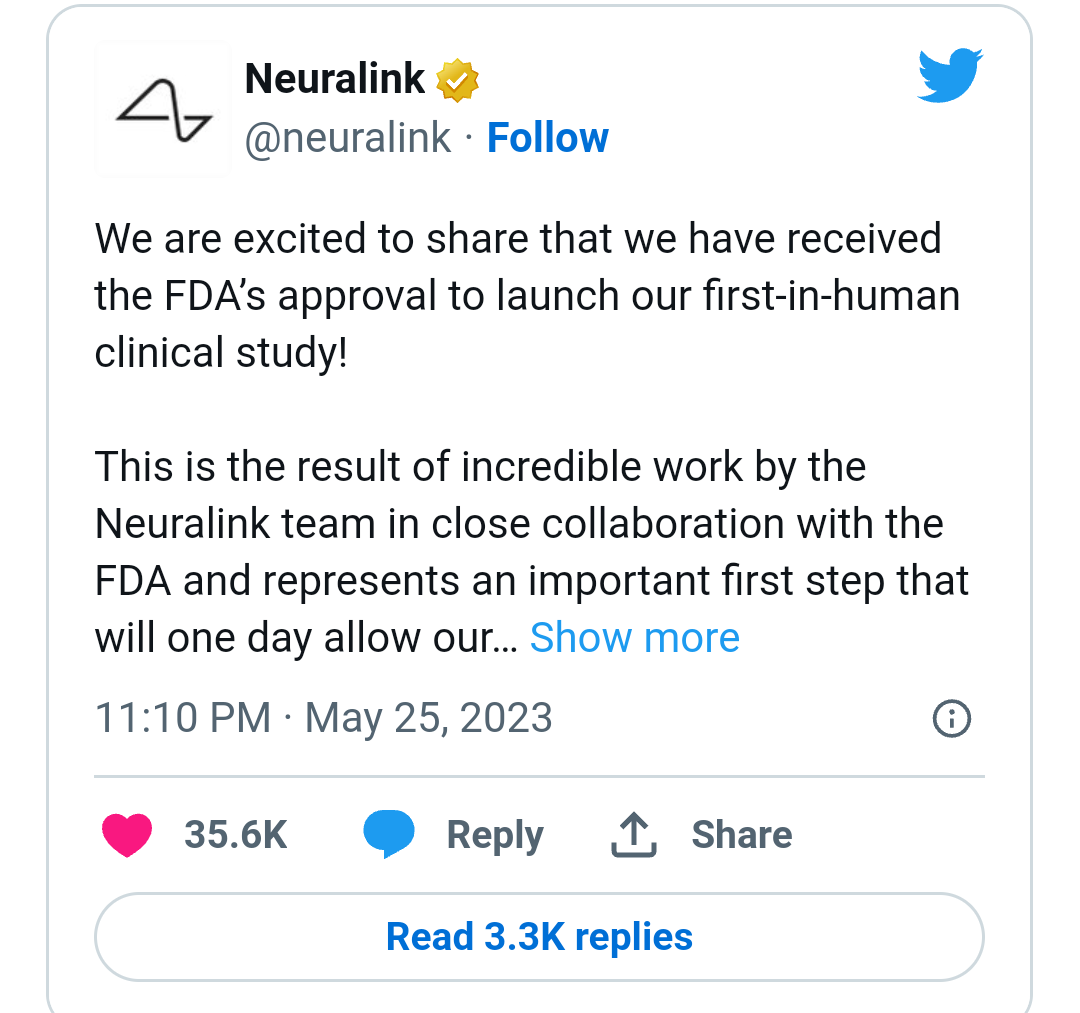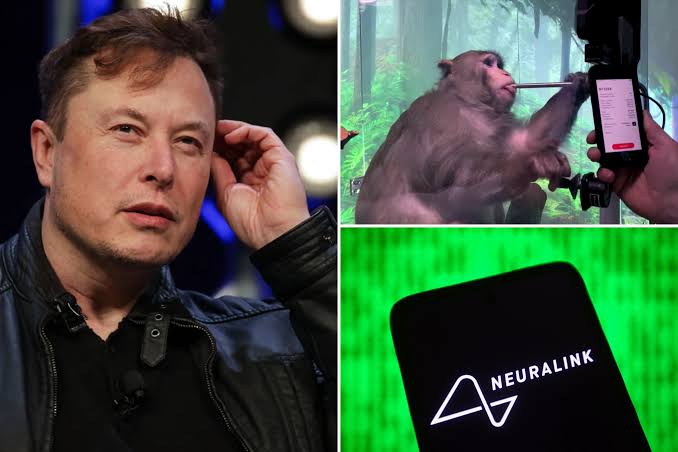Elon Musk’s brain-implant company, Neuralink, has announced that the U.S. Food and Drug Administration (FDA) had given the green light to its first-in-human clinical trial.
The FDA approval “represents an important first step that will one day allow our technology to help many people,” Neuralink said in a tweet on Thursday night, May 25. It did not elaborate on the aims of the study.

Musk’s company Neuralink believes brain implants could cure a range of conditions including obesity, autism, depression and schizophrenia as well as enabling web browsing and telepathy.
Macaque monkeys have been used in testing by Neuralink as the company has been developing Bluetooth-enabled implantable chips — inserted into the monkey’s brains — that the company says can communicate with computers via a small receiver.
In April 2022, Neuralink claimed monkeys can play Pong — a computer game – using just their minds when it released a video of Pager, a male macaque, moving a cursor onscreen without using a joystick to do so.
Musk made headlines late last year when he said he was so confident in the devices’ safety that he would be willing to implant them in his children.
On at least four occasions since 2019, Musk predicted Neuralink would begin human trials but the FDA rejected the application in 2022.
The FDA had pointed out several concerns to Neuralink that needed to be addressed before sanctioning human trials, according to the employees. Major issues involved the lithium battery of the device, the possibility of the implant’s wires migrating within the brain, and the challenge of safely extracting the device without damaging brain tissue.

